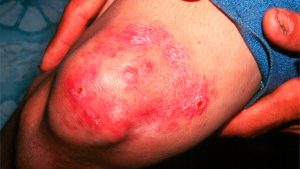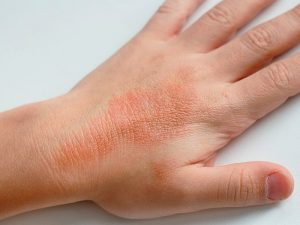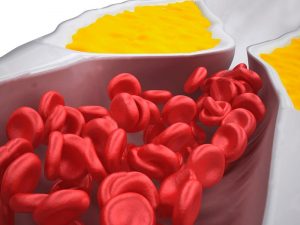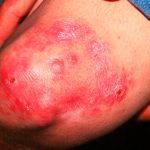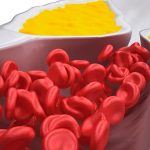Nuts and seeds are an often overlooked ingredient of a healthy diet. Pumpkin seeds, or pepitas (Spanish for “little seed of squash”), contain a higher nutritional value than one might expect. Packaged in a tiny form, they provide magnesium, manganese, protein, zinc and copper in addition to valuable plant compounds. According to the 2010 Dietary Guidelines for Americans, nut consumption is encouraged under the category of nutrient-dense foods. Eating nuts has been shown to improve health outcomes related to cardiovascular disease. They can be consumed raw or roasted and are an easy snack you should consider adding to your diet.
Benefits of Pumpkin Seeds
Several studies show that adding pumpkin seeds to your diet can decrease health risks and promote health benefits.
- Bone and muscle health: Magnesium is one of the essential macrominerals found in these seeds. The daily recommended dose of two tablespoons a day contains 74 milligrams of magnesium. This mineral has several roles, including metabolizing food and synthesizing fatty acids as well as proteins. Magnesium has been linked to proper muscle function, bone formation and a decreased risk of developing type 2 diabetes; a deficiency of magnesium can cause insulin resistance, metabolic syndrome, osteoporosis and coronary heart disease.
- Pregnancy: A report in the American Journal of Clinical Nutrition estimates that 80 per cent of women around the globe have an inadequate zinc intake. Low levels of zinc can affect the hormones associated with the onset of labor. Zinc is necessary for immune function in pregnant women and prevents uterine infections. These health issues can increase the risk of a preterm birth.
- Insomnia: Tryptophan is an amino acid found in pumpkin seeds that has been used to treat chronic insomnia. According to the National Sleep Foundation, this condition affects 30 to 40 per cent of American adults. Tryptophan converts into serotonin (a hormone that relaxes the body) and melatonin (also known as the “sleep hormone”). One study purported that when this amino acid, from a gourd seed, was combined with carbohydrates it could produce the same effect as a pharmaceutical-grade tryptophan insomnia treatment. Eating pumpkin seeds with carbohydrates before bed could produce the melatonin and serotonin needed for better sleep.
Benefits of Pumpkin Seed Oil
Pumpkin seed oil (PSO) is extracted from the seeds. You can find several varieties of oil, but the most common is made from the Cucurbita pepo var styriaca from Syria. The oil density is thick and contains fatty acids, amino acids phytosterols, minerals and vitamins and has been shown in various studies to improve a variety of health conditions.
- Kidney stones: Kidney stones are hard masses made up of crystals in the kidney. They cause extreme back pain. In one study the high levels of phosphorus in PSO were shown to be a potential agent to lower the risk of bladder-stone diseases. The oil lowered calcium oxalate crystal occurrence and calcium levels.
- Low estrogen conditions: The high levels of phytoestrogens in the seeds have been shown in studies to provide supplementation for low estrogen conditions. Women who received two grams a day of pumpkin seed oil over 12 weeks displayed a significant decrease in diastolic blood pressure, an increase in high-density lipoprotein cholesterol and improvement in the severity of menopausal symptoms such as hot flashes, headaches and joint pain.
- Alopecia: Androgenetic alopecia (AGA) is the most common cause of hair loss in men. This condition affects up to 70 per cent of men over 50. The anagen phase is the active phase of hair growth and, due to genetics; the hair follicles on some men gradually grow less in this phase. In a study, PSO was shown to have an antiandrogenic effect, increasing hair count by 40 per cent over 24 weeks.
Pumpkin Seeds Nutrition
As with all foods, everything in moderation is key. Seeds are high in calories, so it is recommended to stick to one to two tablespoons a day. According to the United States Department of Agriculture (USDA) National Nutrient Database, two tablespoons (28 grams) of unshelled baked seeds contain:
- 125 calories.
- 15 grams of carbohydrates.
- 5 grams of protein.
- 5 per cent of your daily iron needs.
When they are baked, this serving size contains:
- 163 calories.
- 4 grams of carbohydrates.
- 8 grams of protein.
- 8 per cent of your daily iron needs.
How to Prepare Pumpkin Seeds
Pumpkin seeds can be consumed both raw and baked. Baking pumpkin seeds is easy and when you add seasoning make a healthy and nutritious snack. The Cleveland Clinic recommends the following recipes to spice up your seedy snack:
- Baking seeds: Clean and dry seeds. Add your seasoning of choice and drizzle one tablespoon of olive oil on top. Bake at 250°F for one and a half hours.
- Pumpkin pie: Add half a teaspoon of cinnamon, a quarter of a teaspoon of nutmeg, a quarter of a teaspoon of cloves, a quarter of a teaspoon of ginger, one teaspoon of brown sugar. Follow normal baking instructions.
- Hot cocoa: Add one tablespoon of cocoa powder, half a teaspoon of cinnamon, and one tablespoon of raw sugar. Follow normal baking instructions.
- Hot tamale: Add one tablespoon of chili powder, a quarter of a teaspoon of cayenne pepper, one teaspoon of lime zest, and salt and Follow normal baking instructions.
Roasted pumpkin seeds can be used as a as garnish for other meals. Use seeds to add a crunch to your salad, add to homemade granola, or blend raw seeds to make pumpkin seed butter. Seeds are high in fat, so they can become rancid. Store your snacks in a cool, dark and dry place to extend their shelf life. When stored correctly your seeds can last for three to four months. Remember to always keep a balanced diet, so don’t fixate on seeds alone as the solution to all your health needs.


